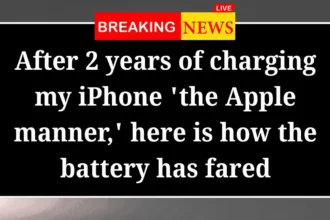Lawsuit Seeks to Compel Trump Administration on Student Loan Forgiveness
The discussion surrounding student loan forgiveness in the United States has taken a significant turn with the advent of a lawsuit aimed at compelling the Trump administration to address this critical issue. As millions of Americans continue to grapple with student debt, the implications of this legal battle could reshape federal student loan policies for years to come.
Understanding Student Loan Forgiveness
Student loan forgiveness has emerged as a hot-button topic, particularly as the nation faces an unprecedented student debt crisis. With the total debt exceeding $1.7 trillion, the financial burden is felt by a vast segment of the population, particularly among recent graduates. The push for relief has grown louder, especially for those struggling to meet their repayment obligations amid various economic challenges.
The Student Debt Crisis Explained
The student debt crisis has escalated to alarming levels, impacting not just individuals but the economy at large. According to data from the Federal Reserve, approximately 44 million Americans carry student loan debt, with the average borrower owing around $37,000. This financial strain often results in delays in critical life milestones, such as purchasing homes, starting families, or saving for retirement. The broader economic implications are also significant, with reduced consumer spending due to the weight of debt obligations.
Federal Programs for Relief
To alleviate some of the financial burden, the federal government has implemented various programs aimed at providing assistance to borrowers. One of the most prominent initiatives is the Public Service Loan Forgiveness (PSLF) program, which offers forgiveness of the remaining balance on eligible federal student loans after borrowers have made 120 qualifying monthly payments while employed full-time in a qualifying public service job. However, many borrowers have reported frustrations in navigating the application process, leading to increased dissatisfaction with the system.
The Trump Administration’s Position on Student Loans
The Trump administration, which governed from January 2017 to January 2021, adopted a distinct approach to federal student loan policies. While some initiatives aimed to reform loan servicing and improve repayment options, critics assert that the administration did not take sufficient action toward broad student loan forgiveness. This perceived inaction has fueled discontent among borrowers and advocates alike.
Actions Taken During Trump’s Presidency
During Donald Trump’s presidency, several moves affected student loan policies, including plans to overhaul the PSLF program and delays in enacting regulations that were intended to protect borrowers from predatory lending practices. Critics have pointed out that while these actions indicated an interest in reform, they fell short of addressing the pressing needs of borrowers facing overwhelming debt.
Key Details of the Lawsuit
The recent lawsuit, filed by a coalition of borrowers and advocacy organizations, seeks to hold the Trump administration accountable for delays in implementing student loan forgiveness programs. The plaintiffs argue that the administration has inadequately addressed the needs of borrowers, particularly those eligible for forgiveness through existing federal programs.
Objectives of the Legal Action
The primary goal of the lawsuit is to pressure the Trump administration to expedite the processing of student loan forgiveness applications, particularly for those under the PSLF program. The lawsuit emphasizes the necessity for increased transparency in the forgiveness process, ensuring that eligible borrowers can access the benefits they are entitled to without unnecessary delays.
Legal Basis of the Case
The legal foundation of the lawsuit rests on allegations of administrative inaction and violations of federal regulations regarding the processing of forgiveness applications. The plaintiffs seek court intervention to enforce compliance with existing laws that guarantee access to forgiveness programs for borrowers. This legal strategy reflects the frustration many borrowers experience regarding the lack of responsiveness from federal agencies.
Implications of the Lawsuit
The outcome of this lawsuit could have significant implications for student loan policies that extend beyond the Trump administration. A favorable ruling for the plaintiffs may set a legal precedent that encourages future administrations to prioritize student loan forgiveness.
Potential Impact on Borrowers
For borrowers, the implications of the lawsuit are profound. A favorable court ruling could lead to the swift cancellation of a significant amount of student debt for many individuals, particularly those who have long awaited forgiveness under existing programs. Furthermore, a successful legal action could inspire additional advocacy groups to pursue similar lawsuits, amplifying the dialogue around the need for student debt relief.
Societal Repercussions
Beyond the financial relief for individual borrowers, the lawsuit signifies a growing recognition of the urgent need for systemic reform in the U.S. education financing system. Increased awareness and activism surrounding student debt may prompt policymakers to contemplate more comprehensive reforms, such as tuition-free community college initiatives or expanded income-driven repayment plans.
The Role of Advocacy Groups
Numerous advocacy organizations have been instrumental in supporting the lawsuit, raising awareness about the obstacles borrowers face, and mobilizing public support for the cause. Groups such as the Student Debt Crisis Center and the National Consumer Law Center have been vocal advocates for student loan reform, emphasizing the necessity for systemic changes to address the student debt crisis.
Grassroots Movements
The lawsuit symbolizes a broader grassroots movement within the United States, as borrowers unite to share their stories and highlight the emotional and financial toll of student debt. These personal narratives have become a vital part of the fight for student loan forgiveness, underscoring the urgency of the issue.
Community Mobilization and Advocacy
Advocacy groups have organized campaigns, town hall meetings, and social media initiatives to galvanize support for student loan forgiveness. By utilizing these platforms, they aim to educate the public and policymakers about the realities of student debt and the necessity for immediate action.
The Future of Student Loan Forgiveness
As the lawsuit progresses, the future of student loan forgiveness remains uncertain. The response from the Trump administration, coupled with potential policy shifts under the Biden administration, will significantly influence the landscape of student debt relief.
Legislative Initiatives
In addition to legal actions, legislators are considering various measures aimed at facilitating student loan forgiveness. Proposals to expand eligibility for forgiveness programs and create new pathways for debt cancellation are currently under discussion. The interplay between these legislative initiatives and the ongoing lawsuit will be crucial in determining the trajectory of student loan policies in the coming years.
The Biden Administration’s Approach
The Biden administration has expressed a commitment to tackling the student debt crisis through various initiatives, including proposed reforms to the PSLF program and discussions surrounding broader debt cancellation measures. The outcome of the current lawsuit could potentially accelerate these efforts, fostering changes designed to provide relief to borrowers.
Conclusion
The lawsuit seeking to compel the Trump administration on student loan forgiveness encapsulates the ongoing struggle faced by millions of Americans burdened by student debt. As legal proceedings unfold, the implications for borrowers and federal student loan policies could be profound. The dialogue surrounding student loan forgiveness is far from settled, and the resolution of this lawsuit may serve as a pivotal moment in the U.S. approach to student debt relief.
FAQ
What is the lawsuit’s primary objective?
The lawsuit aims to compel the Trump administration to expedite the processing of student loan forgiveness applications, ensuring that eligible borrowers receive the benefits they are entitled to.
Who are the plaintiffs in the lawsuit?
The plaintiffs include a coalition of borrowers and advocacy organizations seeking to hold the Trump administration accountable for delays in implementing student loan forgiveness programs.
What are the potential outcomes of the lawsuit?
A favorable ruling could lead to significant debt cancellation for many borrowers and set a precedent for future administrations to prioritize student loan forgiveness.
What role do advocacy groups play in this lawsuit?
Advocacy groups are crucial in mobilizing support for the lawsuit, raising awareness about borrower challenges, and pushing for systemic changes to address the student debt crisis.
How might this lawsuit impact future student loan policies?
The lawsuit’s outcome could influence legislative measures aimed at expanding eligibility for forgiveness programs and shaping the overall approach to student debt relief in the United States.
What does the Public Service Loan Forgiveness (PSLF) program entail?
The PSLF program is a federal initiative that forgives the remaining balance on eligible federal student loans for borrowers who have made 120 qualifying monthly payments while working full-time in a qualifying public service job.







